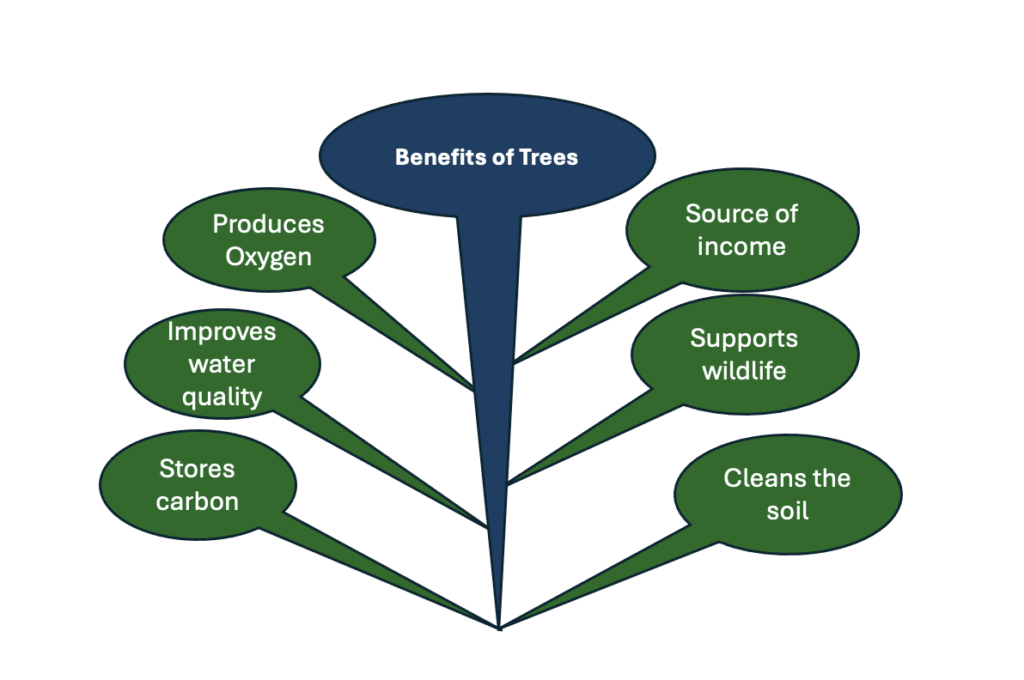
Tree planting is of paramount importance for numerous reasons, spanning environmental, social, economic, and even psychological aspects. Here are some key reasons highlighting the significance of tree planting:
- Environmental Conservation: Trees play a crucial role in mitigating climate change by absorbing carbon dioxide (CO2) from the atmosphere during photosynthesis and storing carbon in their biomass. This helps reduce the concentration of greenhouse gases, thus mitigating global warming and its associated impacts such as extreme weather events, rising sea levels, and disrupted ecosystems.
- Biodiversity Conservation: Forests and trees provide habitats for a diverse array of plant and animal species, contributing to biodiversity conservation. By planting trees, we help preserve and restore ecosystems, which in turn supports wildlife populations, maintains genetic diversity, and ensures ecological resilience.
- Soil Protection and Conservation: Trees help prevent soil erosion by stabilizing the soil with their roots and reducing surface runoff. They also improve soil fertility by enriching it with organic matter as their leaves decompose, enhancing soil structure and nutrient content.
- Climate Resilience: Forests and tree cover contribute to climate resilience by providing natural buffers against the impacts of climate change, such as regulating local temperatures, moderating extreme weather events, and preserving ecological balance.
- Economic Benefits: Tree planting can generate various economic opportunities, including sustainable forestry practices, agroforestry systems, ecotourism ventures, and the production of timber, fruits, nuts, and other forest products. It can also create employment opportunities in nurseries, forestry management, and eco-friendly industries.
